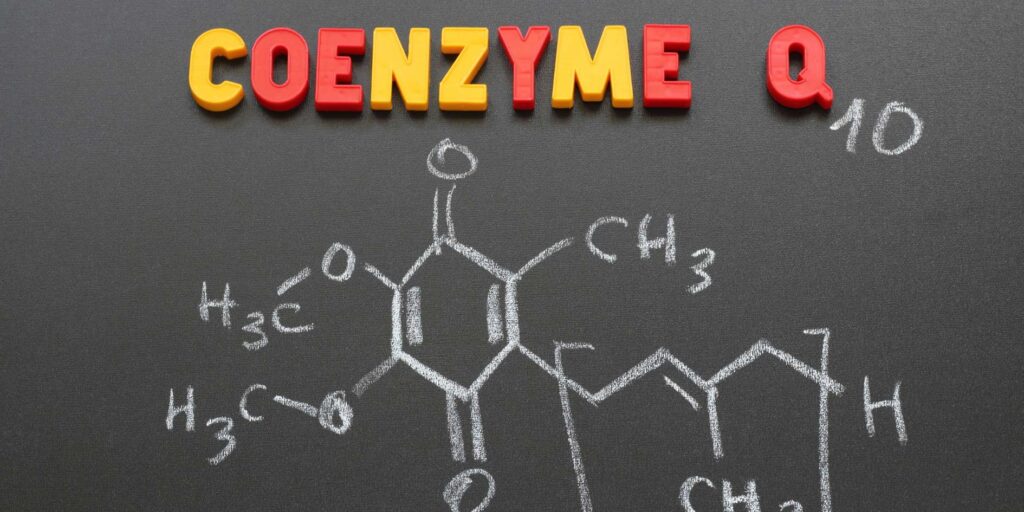In this article, we delve into the fascinating relationship between CoQ10 and mitochondrial function, exploring the pivotal role of CoQ10 in optimizing mitochondrial performance and promoting cellular vitality. Discover how CoQ10 influences mitochondrial function and its potential implications for overall well-being. Mitochondria, the powerhouses of the cell, are essential for energy production and maintaining cellular health. These remarkable organelles play a crucial role in various physiological processes, including metabolism, signaling, and cell survival. Mitochondrial dysfunction can have far-reaching consequences on overall health. In recent years, researchers have turned their attention to Coenzyme Q10 (CoQ10), a vital compound that has shown promise in supporting mitochondrial function.
Understanding CoQ10 in Mitochondrial Function
Mitochondria are responsible for generating adenosine triphosphate (ATP), the energy currency of the cell. This energy production occurs through a complex series of biochemical reactions collectively known as cellular respiration. Mitochondrial function relies on the efficient functioning of various components, including the electron transport chain and oxidative phosphorylation.
The Role of Coenzyme Q10
Coenzyme Q10, also known as CoQ10 or ubiquinone, is a naturally occurring compound found in every cell of the human body. CoQ10 plays a critical role in mitochondrial function through its involvement in the electron transport chain. It acts as an electron carrier, shuttling electrons from complexes I and II to complex III, ultimately facilitating ATP production.
Structure of Mitochondria
Mitochondria have a unique structure that sets them apart from other cellular components. They consist of an outer membrane, an inner membrane, and an intermembrane space. The inner membrane is highly folded, forming structures called cristae, which increase the surface area available for energy production. The space enclosed by the inner membrane is known as the mitochondrial matrix, which contains enzymes, DNA, and other essential components for ATP synthesis.

Impact of CoQ10 in Mitochondrial Function
- Energy Production: CoQ10 is an essential component of the electron transport chain, ensuring the smooth flow of electrons and the efficient generation of ATP. Supplementation with CoQ10 has been shown to enhance ATP production, thereby supporting cellular energy levels.
- Antioxidant Protection: Mitochondria are particularly susceptible to oxidative stress due to the constant production of reactive oxygen species (ROS) during energy production. CoQ10 acts as an antioxidant, helping to neutralize free radicals and protect mitochondrial components from oxidative damage. Its presence in both the inner mitochondrial membrane and the mitochondrial matrix enhances antioxidant defense.
- Cellular Respiration: CoQ10 plays a crucial role in the electron transport chain, allowing for the efficient transfer of electrons and the generation of a proton gradient across the inner mitochondrial membrane. This proton gradient is essential for ATP synthesis through oxidative phosphorylation.
- Mitochondrial Biogenesis: CoQ10 has been found to support mitochondrial biogenesis, the process by which new mitochondria are formed. It influences the expression of genes involved in mitochondrial replication, resulting in increased mitochondrial density and function.
- Age-Related Mitochondrial Decline: As we age, mitochondrial function naturally declines, leading to decreased energy production and increased oxidative stress. CoQ10 levels also tend to decrease with age. Supplementation with CoQ10 has shown promise in mitigating age-related mitochondrial dysfunction, supporting energy production, and reducing oxidative damage.
Choosing the Right CoQ10 Supplement
When considering CoQ10 supplementation, it is important to select a high-quality product. Look for supplements that contain ubiquinol, the reduced form of CoQ10, as it is more readily absorbed by the body. Additionally, consider factors such as dosage, bioavailability, and manufacturing practices to ensure the effectiveness and safety of the product.
Advanced Mitochondrial Formula from Advanced Bionutritionals
In the realm of nutritional supplements, there is a growing interest in supporting mitochondrial health, recognizing its pivotal role in overall well-being. Advanced Bionutritionals, a reputable company known for its commitment to science-backed formulations, introduces their Advanced Mitochondrial Formula—a cutting-edge dietary supplement designed to optimize mitochondrial function and support cellular vitality.
Mitochondria, the powerhouses of our cells, play a crucial role in energy production, metabolism, and maintaining cellular homeostasis. However, factors such as oxidative stress, aging, and nutrient deficiencies can impair mitochondrial function, potentially leading to decreased energy levels, reduced vitality, and increased susceptibility to various health conditions.
The Advanced Mitochondrial Formula aims to address these concerns by delivering a comprehensive blend of carefully selected ingredients that work synergistically to support and nourish mitochondria. This advanced formula combines scientifically researched compounds known for their ability to enhance mitochondrial function, combat oxidative stress, and promote overall cellular health.
With Advanced Bionutritionals’ commitment to quality and efficacy, the Advanced Mitochondrial Formula provides a promising solution for individuals seeking to optimize their mitochondrial health. Whether you’re an athlete aiming to enhance endurance and performance, an individual looking to boost energy levels, or someone interested in promoting overall cellular vitality, this formula offers a targeted approach to support your mitochondrial well-being.
ATP Production and Cellular Respiration
The primary function of mitochondria is to produce ATP through a process called cellular respiration. Cellular respiration involves a series of biochemical reactions that convert nutrients, such as carbohydrates and fats, into ATP. This process occurs in several stages, including glycolysis, the citric acid cycle (also known as the Krebs cycle), and the electron transport chain. These processes take place within different compartments of the mitochondria, utilizing oxygen and generating carbon dioxide as a byproduct.
Importance of Mitochondria
Mitochondria are vital for various cellular functions and play a crucial role in maintaining overall health. Here are some key reasons why mitochondria are essential:
- Energy Production: ATP generated by mitochondria serves as the primary energy source for cellular activities, including muscle contraction, protein synthesis, and maintaining cellular homeostasis.
- Metabolism and Nutrient Utilization: Mitochondria are involved in metabolizing carbohydrates, fats, and proteins, breaking them down to produce ATP and other essential molecules needed for cellular processes.
- Calcium Regulation: Mitochondria help regulate intracellular calcium levels, which is critical for signaling pathways, muscle contraction, and cellular processes such as apoptosis (programmed cell death).
- Reactive Oxygen Species (ROS) Regulation: Mitochondria play a role in managing reactive oxygen species, which are natural byproducts of cellular respiration. Excessive ROS can cause oxidative stress and damage cellular components. Mitochondria have antioxidant defense systems to neutralize ROS and maintain cellular health.
- Apoptosis: Mitochondria are involved in programmed cell death, known as apoptosis. They release specific proteins that initiate apoptosis when necessary, helping to remove damaged or unnecessary cells from the body.
- Cell Signaling: Mitochondria participate in cellular signaling pathways, influencing processes such as cell growth, differentiation, and gene expression.
Conclusion
Mitochondria are integral to cellular function and overall health, and supporting their optimal function is essential. Coenzyme Q10 plays a vital role in mitochondrial function by facilitating ATP production, providing antioxidant protection, and supporting mitochondrial biogenesis. Supplementation with CoQ10 shows promise in enhancing energy production, reducing oxidative stress, and mitigating age-related decline in mitochondrial function. As always, it is advisable to consult with a healthcare professional before starting any new supplementation regimen to ensure it aligns with your specific health needs and
Read some of my other articles
Nattokinase and Serrapeptase benefits





Pingback: Review of the Best Mitochondrial Supplement of 2024
Pingback: Mitochondrial Supplements: Maximizing Your Energy Potential
Pingback: Understanding Mitochondrial Function: A Comprehensive Guide